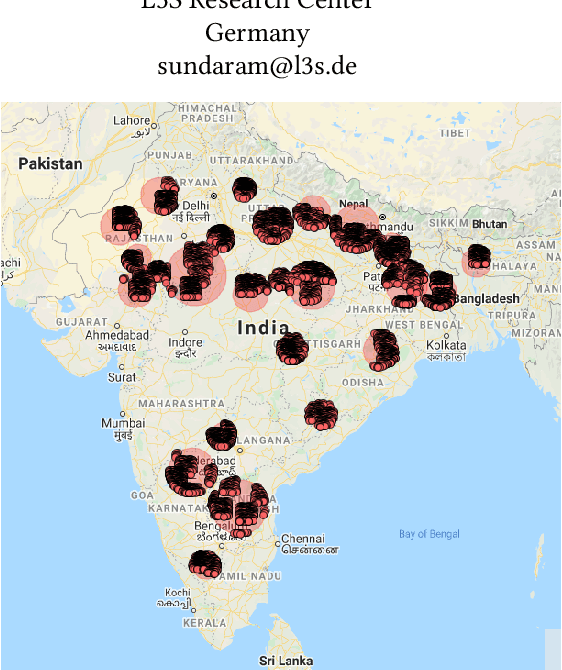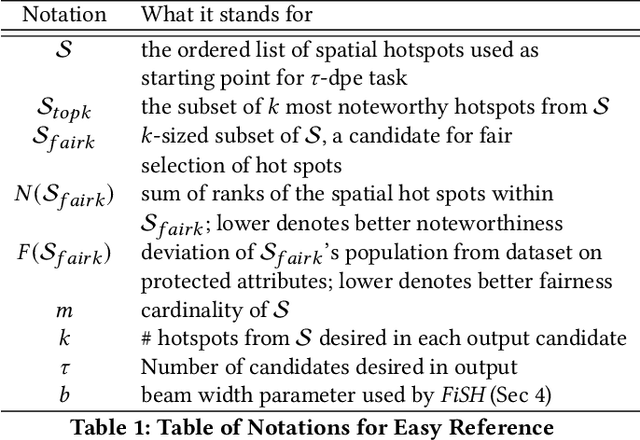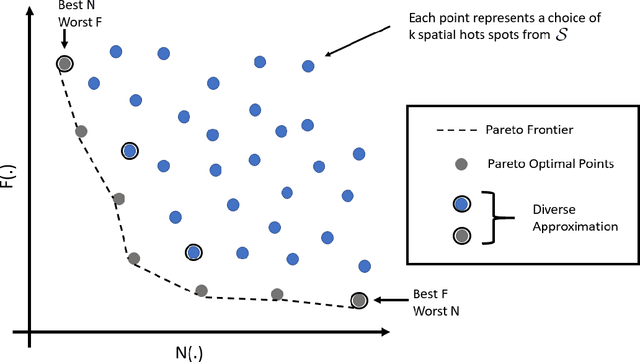FiSH: Fair Spatial Hotspots
Paper and Code
Jun 01, 2021



Pervasiveness of tracking devices and enhanced availability of spatially located data has deepened interest in using them for various policy interventions, through computational data analysis tasks such as spatial hot spot detection. In this paper, we consider, for the first time to our best knowledge, fairness in detecting spatial hot spots. We motivate the need for ensuring fairness through statistical parity over the collective population covered across chosen hot spots. We then characterize the task of identifying a diverse set of solutions in the noteworthiness-fairness trade-off spectrum, to empower the user to choose a trade-off justified by the policy domain. Being a novel task formulation, we also develop a suite of evaluation metrics for fair hot spots, motivated by the need to evaluate pertinent aspects of the task. We illustrate the computational infeasibility of identifying fair hot spots using naive and/or direct approaches and devise a method, codenamed {\it FiSH}, for efficiently identifying high-quality, fair and diverse sets of spatial hot spots. FiSH traverses the tree-structured search space using heuristics that guide it towards identifying effective and fair sets of spatial hot spots. Through an extensive empirical analysis over a real-world dataset from the domain of human development, we illustrate that FiSH generates high-quality solutions at fast response times.
 Add to Chrome
Add to Chrome Add to Firefox
Add to Firefox Add to Edge
Add to Edge